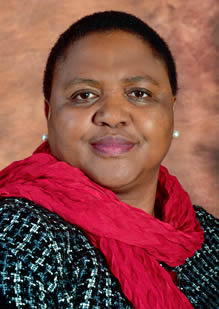T Didiza: Biodiversity Economy And Investment Indaba session convened under theme: Advancing biodiversity economy as a contributor to the rural economy
Address by Ms Thoko Didiza, MP Minister of Agriculture, Land Reform, and Rural Development on the occasion of Biodiversity Economy And Investment Indaba session. Theme: Advancing biodiversity economy as a contributor to the rural economy
Birchwood Hotel, Ekurhuleni, Gauteng Province, 25 March 2024
Minister Barbara Creecy
Minister Ebrahim Patel
Minister Patricia de Lile
MEC Mbali Hlophe
Senior government officials
Fellow panellists
Ladies and gentlemen
It is a great pleasure to be here engaging on a critical topic that impacts our lives daily. Biodiversity is about the air we breathe, the water we drink, the food we eat, and all other forms of life. Biodiversity is about the interconnectedness of all forms of life and it enables humans to thrive.
Managing and protecting biodiversity is more important for rural areas and communities because of the deep connection they have with the environment, plants, and animals. Through biodiversity, rural areas and communities benefit from economic opportunities created by tourism. With tourism, communities also get a chance to showcase their culture, their food, and their way of living.
However, to build and promote a sustainable biodiversity economy, it must be underpinned by the active participation of local communities. This means the needs and rights of local communities and indigenous people must also be protected, to circumvent a perception that the value of nature or animals is seen to be elevated above that of a human being.
Striving for the balance between communities' developmental needs and the biodiversity economy can advance the development of rural areas and jobs. At the centre of this balance is the importance of sustainable agriculture, so that food production preserves the environment.
Programme Director, permit me to highlight some of the areas that I think require our attention to unlock the potential of the biodiversity economy in the country, in particular our rural areas.
First, is to manage the competition for land and land-use changes: Enhancing a land administration system that protects nature and equally promotes sustainable development for urbanization and industrialization. In most rural areas, the land-use changes are not optimally managed which at times creates conflicts amongst proponents of the environment, culture, and development. As the population grows so does the need for alternative land use for housing, agriculture, and other developments. This is the reality and the balancing act that we must always uphold.
While protecting our nature and wildlife, communities must be assisted with lands for development. This approach will make communities value nature and actively engage in the protection of biodiversity.
The government does provides communities with land through various programs such as the Land Restitution. This has enabled communities to pursue their developmental agenda. However, there is an opportunity to encourage some communities to enter into a biodiversity economy by growing wildlife animals, and indigenous crops. In particular, crops that can be used for cultural and traditional medicinal purposes so that the traditional health industry is supported.
As part of promoting the biodiversity economy, the Department of Agriculture, Land Reform, and Rural Development recognized the need to protect natural resources like land and water. Moreover, it identified the need to mitigate pollution of the environment. To achieve this, the department created the Land Care program.
It is a government-supported community-based initiative operating across the country to conserve land and water, encourage sustainable use of land and water, and enhance awareness of the importance of natural resources. In the main, it focuses on protecting and managing water, velds for animal grazing, and improving soil quality for agriculture.
On average the department working with communities and the private sector rehabilitates about 31 000 hectares per annum, which enables farmers to graze their animals and produce crops for food security.
The second is to create a sustainable market for wildlife products: wildlife products contain a variety of health benefits to humans and can substitute some food items that are imported into the country. Consumer educational campaigns are a powerful tool that has helped industries like pork (from the Listeriosis Case and Religious Superstitions) to build a profitable and sustainable market. Processing of wildlife to various food and non-food products could also build local processing businesses in rural areas, thus creating new jobs for communities.
Thirdly to involve communities in the promotion and protection of biodiversity: poaching and unsustainable hunting are some of the risks impacting the biodiversity economy. Encouraging communities to be involved in the protection of wildlife and fight against poaching is crucial to achieving sustainability in this sector. This will protect biodiversity and also create jobs for communities while preserving nature.
There are many areas that we can discuss which are important in the promotion of the biodiversity economy. As I close, Programme Director, I must congratulate Minister Creecy and the team for organizing this important conference which looks at the opportunities offered by the biodiversity economy. South Africa is one of the fortunate countries that has a diverse environment which must be protected for current and future generations of this South Africa.
I thank you.


